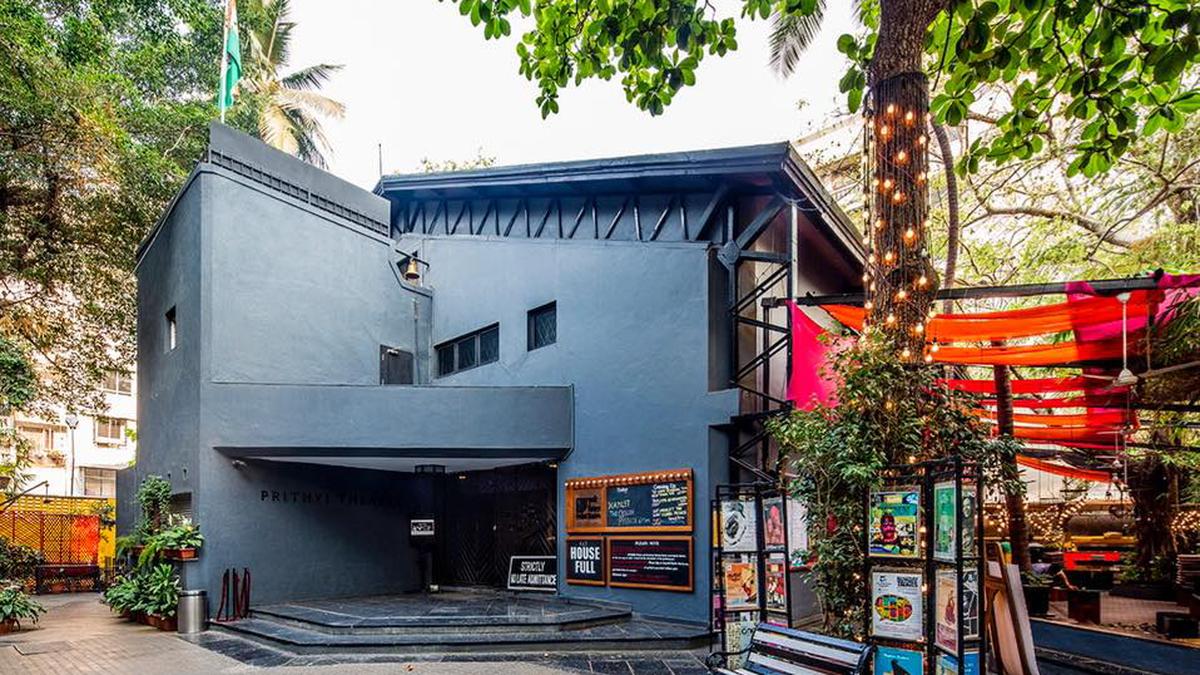
Prithvi Theatre gears up for another edition of its annual festival
The Hindu
How Mumbai’s Prithvi Theatre has carved its own niche on the Indian cultural map
It’s a familiar sight each time one enters the Prithvi Theatre courtyard. Up in front, a blackboard announces the day’s event, along with the schedule for the remainder of the week. On the right, the café buzzes with young people grabbing a bite over conversations about cinema, cricket or the Coastal Road. An hour before any show, a winding queue builds up on the left of the entrance, as theatre buffs arrive early for a good seat. A few browse at the bookstore.
Located in a posh section of Juhu, Mumbai, Prithvi has, over the years, carved its own niche on the Indian cultural map. Since the auditorium was set up in 1978, it has been a launch pad or grooming ground for many theatre personalities. Kunal Kapoor, who runs the place, says the following has only grown over the years. “Today, the audiences are younger, and the number of shows has increased. Besides plays, we also have monthly shows for Indian and western classical music, and jazz, along with dance performances,” he says.
The venue gears up for its annual Prithvi Theatre Festival, to be held from November 3 to 18. This year, the festival incorporates a string of theatre performances, three music concerts and a dance recital (see box).
The place has had an illustrious history, as it was founded on the legacy of two repertory theatre companies — Prithviraj Kapoor’s Prithvi Theatres and Geoffrey and Laura Kendal’s Shakespeareana. When Prithviraj Kapoor passed away in 1972, his son Shashi Kapoor bought the leased plot of land on which the repertory’s storage shed stood. Determined to have a permanent theatre venue, Shashi and his wife Jennifer brought in architect Ved Segan. The result was a unique auditorium with seating on three sides that allowed a perfect view of the stage from any spot. Even the acoustics were planned in such a manner that one could hear the faintest whisper from the last row. “The older theatres in the West were designed that way, and the effort was to ensure that the actors were not far from the audience,” says Kunal, the eldest son of Jennifer and Shashi.
Prithvi Theatre was inaugurated on November 5, 1978, with the Hindi production of G.P. Deshpande’s Uddhwasta Dharmashala, directed by Om Puri and starring Naseeruddin Shah, Rohini Hattangadi and Neelam Mansingh Chowdhury. M.S. Sathyu’s political satire Bakri followed soon, and Motley, the theatre company started by Naseeruddin Shah and Benjamin Gilani, staged Samuel Beckett’s English play Waiting For Godot. The story is that Naseeruddin was never keen on Godot as he thought it was too obtuse, but over the years, it became one of Prithvi’s most well-received plays.
In the 1980s, the venue became a haunt for directors and actors. Satyadev Dubey, Feroz Abbas Khan, Akash Khurana, Nadira Zaheer Babbar, Pankaj Kapur, Paresh Rawal, Shafi Inamdar, Dinesh Thakur, Arundhati Nag, Tom Alter and Bhakti Barve were among the regulars. Says Feroz Abbas Khan, “It became a community. I was inspired by Jennifer Kapoor’s approach and dedication, and meeting her was a turning point.” Describing Prithvi as the beating heart of theatre in Mumbai, Motley’s Ratna Pathak Shah says it has helped an audience grow. “Earlier, the audience was smaller. Now almost every show is houseful,” she adds.
The first generation of theatre groups included Satyadev Dubey’s Theatre Unit, the Indian People’s Theatre Association, Om Katare’s Yatri, Nadira Zaheer Babbar’s Ekjute, Om Puri’s Majma, Dinesh Thakur’s Ank and Gujarati theatre personality Mahendra Joshi’s Avantar. Though the audience initially preferred comedies and lighter subjects, there was a growing demand for serious and experimental theatre once the venue was established. To mark five years of Prithvi’s being, a theatre festival was started in 1983. Added attractions were the café and bookshop.

Municipal Administration & Urban Development (MA&UD) Minister P. Narayana discussed the construction of the capital city of Amaravati with the senior officials and engineers of the City & Industrial Development Corporation of Maharashtra (CIDCO), at the Andhra Pradesh Capital Region Development Authority (AP-CRDA) office in Vijayawada.










